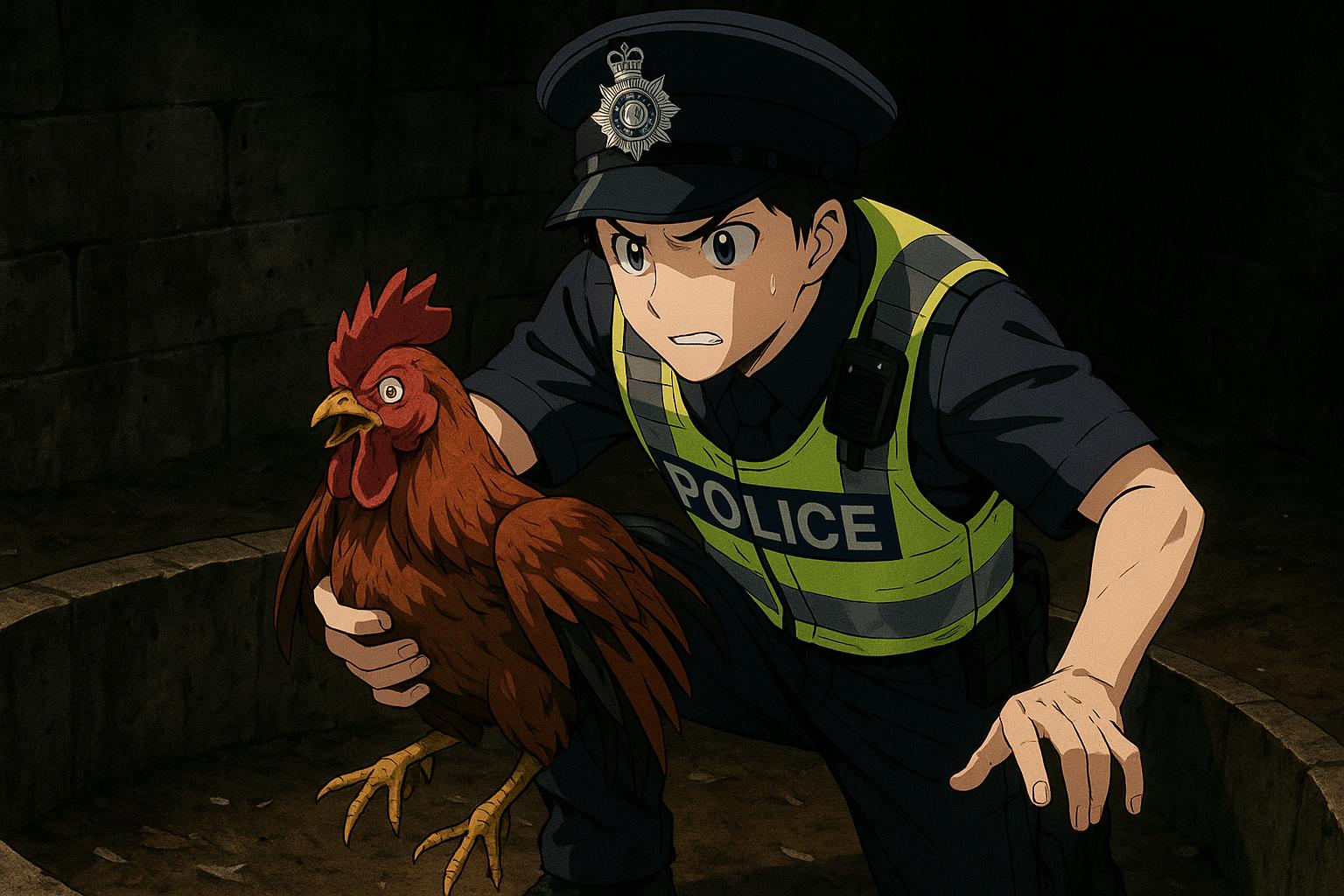Authorities have disrupted an alleged cockfighting operation in Lancashire, following a police raid on a stables in Lytham, where concerns about animal welfare led to the seizure of 27 cockerels. The operation, which unfolded on May 12, showcased the continuing issue of illegal cockfighting in the UK, a practice that has been outlawed for over 200 years.
Images shared by the Fylde Rural Task Force following the raid revealed several makeshift pits, indicating organised cockfighting activities at the site. The two men arrested during the operation, now released pending further investigations, are facing potential charges under the Animal Welfare Act. Given the specialized nature of the incident, a vet experienced in exotic birds was called in to assess the condition of the animals, some of which required veterinary treatment.
This recent incident is not isolated; there has been a series of similar operations in the UK, highlighting ongoing concerns surrounding animal welfare related to cockfighting. In January 2014, a police raid in Kent uncovered a barn housing up to 170 birds bred for fighting. The shocking discovery included numerous deceased birds, with three men arrested for animal cruelty and drug-related offenses. The investigation indicated a disturbing trend where cockerels’ combs are often removed to enhance their fighting capabilities, further emphasising the cruelty involved.
In another significant case in 2018, a raid in Hambleton, North Yorkshire, led to the arrests of four men aged between 23 and 53 for their involvement in staged cockfights and training birds for combat. This operation underscored the persistent nature of illegal cockfighting, illustrating the challenges law enforcement faces while trying to combat this archaic blood sport.
A more recent example from August 2023 in Lincolnshire saw three individuals arrested at a traveller site on suspicion of involvement in organised animal fights. This operation resulted in not only the seizure of cockerels but also dogs and a suspected stolen caravan, underlining the broader implications of such activities on community safety and animal welfare.
Despite cockfighting being formally banned for nearly two centuries, these incidents demonstrate the ongoing struggle to enforce animal welfare laws in the UK. Each case sheds light on a troubling cultural persistence of animal cruelty, prompting authorities to take a decisive stance against such offences. A spokesperson for the police in Lytham articulately stated their firm approach, asserting that "we're not afraid to go pecking around where needed," reinforcing their commitment to tackling illegal animal fights and ensuring public awareness regarding these cruel practices.
As discussions around animal rights and welfare grow increasingly prevalent, the call for vigilant enforcement of existing laws becomes ever more urgent. With each raid and subsequent legal action, authorities aim to send a clear message: the cruelty associated with cockfighting will not be tolerated, and those who engage in it will face the consequences. This ongoing dialogue between enforcement, community awareness, and legal frameworks continues to shape the future of animal welfare policies in the UK.
Reference Map
- Paragraphs 1, 2, 3, 4, 5, 6.
- Paragraph 4.
- Paragraph 5.
- Paragraph 6.
- Paragraph 4.
- Paragraph 5.
- Paragraph 6.
Source: Noah Wire Services
